-
 +26 +1
+26 +1Gobsmacking Study Finds Life on Earth Emerged 4.2 Billion Years Ago
Once upon a time, Earth was barren.
-
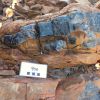 +1 +1
+1 +1At 2.4 billion years old, this shiny black rock could tell scientists an enormous amount about the origins of complex life
A 2.4-billion-year old microfossil found in the Pilbara's Hamersley Ranges could be a missing link in the evolution from simple to complex life, according to researchers.
-
 +40 +1
+40 +1Autism could be diagnosed with stool sample, scientists say
Researchers found differences in the gut microbes of autistic people, raising hopes for faster diagnosis
-
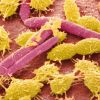 +21 +1
+21 +1'Obelisks': Entirely New Class of Life Has Been Found in The Human Digestive System
Peering into the jungle of microbes that live within us, researchers have stumbled across what seem to be an entire new class of virus-like objects.
-
 +53 +1
+53 +1Scientists Have Finally Figured Out What Ignites Endless Itching in Eczema
The unbearable itch that accompanies the chronic inflammatory skin condition eczema has a new culprit.
-
 +37 +1
+37 +1'Phage therapy' could treat some drug-resistant superbug infections, but comes with unique challenges
Researchers are desperately seeking viable alternatives to antibiotics. So what is phage therapy? And how could it help?
-
 +33 +1
+33 +1Your microbes live on after you die − a microbiologist explains how your necrobiome recycles your body to nourish new life
With the help of the microbes that once played an essential role in keeping you alive, the building blocks of your body go on to become a part of other living things.
-
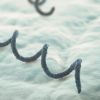 +50 +1
+50 +1We May Have Been Completely Wrong About The Origins of Syphilis in Europe
When Italian explorer Christopher Columbus and his Spanish troops returned to Europe from the Americas in the late 15th century, they notoriously brought back the deadly pathogen responsible for syphilis.
-
 +34 +1
+34 +1A Strange World of Organisms Lives Inside You, But Not Like You Think
There are myths about the whole world inside your gut, made up of mostly harmless and often helpful microbes that reside in the gastrointestinal tract.
-
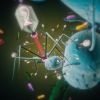 +34 +1
+34 +1Doctors in Eastern Europe have been using viruses to treat superbug infections since the 1930s.
Bacteriophages have been a mainstay in medical centers abroad for some time now. Georgia’s Eliava Institute has been active since the 1930s. Yet countries including the U.S. and U.K. grant access almost exclusively under compassionate use. That means bacteriophages have been languishing for decades as a last-ditch option.
-
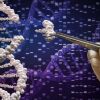 +23 +1
+23 +1Next-level CRISPR gene editing: No viruses required
Modified viruses have proven a handy way to get CRISPR/Cas9 gene editing materials into the nucleus of cells – but they're expensive, difficult to scale and potentially toxic. Now, researchers have found a non-viral approach that does the job better.
-
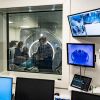 +6 +1
+6 +1Helsinki University makes Parkinson's disease breakthrough
Scientists at the University of Helsinki on Friday said they had demonstrated that certain strains of Desulfovibrio bacteria are probable causes (siirryt toiseen palveluun) of Parkinson's disease in most cases. This finding enables screening carriers of Desulfovibrio strains and subsequently removing the bacteria from the gut. This may make it possible to prevent Parkinson's disease.
-
 +1 +1
+1 +1Surprising newfound ocean bacteria could aid search for alien life
In the deep waters of Earth's oceans, scientists have discovered a new species of bacteria flourishing in the plumes from submarine hot springs. Such hot springs likely also exist on oceanic worlds like Jupiter's moon Europa and the Saturn satellite Enceladus, so these observations sharpen our understanding of the forms alien life might take on those moons, astronomers say.
-
 +4 +1
+4 +1Not a breath of fresh air: study finds sewage bacteria in ocean spray
Pathogens such as E coli, norovirus and salmonella can be blown miles into coastal communities after a rainstorm
-
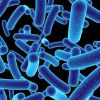 +26 +1
+26 +1Study uncovers a strong link between gut bacteria and development of Parkinson’s disease
Parkinson's disease may start in the gut and spread to the brain, a new study from the University of Surrey suggests.
-
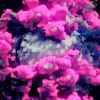 +15 +1
+15 +1Visualizing the inside of cells at previously impossible resolutions provides vivid insights into how they work
Many microscopy techniques have won Nobel Prizes over the years. Advancements like cryo-ET that allow scientists to see the individual atoms of cells can reveal their biological functions.
-
 +2 +1
+2 +1A Mass Extinction Is Taking Place in the Human Gut
To preserve humankind’s diverse bacteria, scientists are harvesting, freezing, and storing poop from around the world.
-
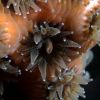 +9 +1
+9 +1Coral’s Microbiome “Reshuffles” During Hibernation
A new study has analyzed the microbiome of a species of coral before, during and after a period of “dormancy” during cold temperatures. The research found that Astrangia poculata's microbiome "reshuffles" during a period of quiescence.
-
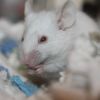 +19 +1
+19 +1Bacteria that break down nicotine found in the guts of mice
A team of researchers affiliated with multiple institutions in China, working with a colleague in the U.S., has isolated a type of bacteria in the guts of mice that break down nicotine. In their paper published in the journal Nature, the group describes how they isolated the bacteria and why their finding could reduce incidences of fatty liver disease in humans.
-
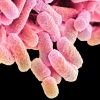 +17 +1
+17 +1Vaccine to prevent UTIs could be taken as a dissolving tablet
A vaccine tablet that dissolves under the tongue protects against urinary tract infections (UTIs) in mice and rabbits. If it is shown to work in people, it could reduce the need to treat these infections with antibiotics.
Submit a link
Start a discussion




















